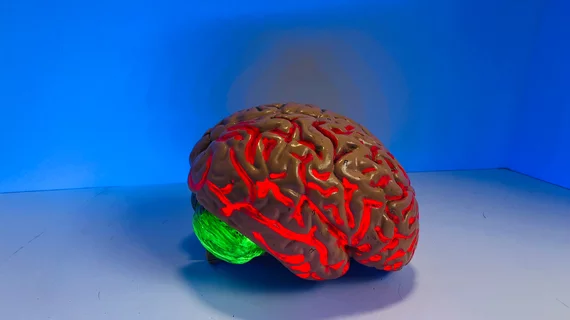MRI scans reveal bigger brains in people with optimal cardiovascular health
Can a healthy cardiovascular lifestyle make your brain bigger? According to the brain MRIs of more than 35,000 people, the answer is yes.
Researchers recently used the information obtained from those thousands of MRI scans to connect the dots on how heart health affects brain health. The results of the study are set to be presented at the American Stroke Association’s International Stroke Conference taking place Feb. 8-11.
“Maintaining good cardiovascular health helps to prevent cardiovascular events such as stroke and heart attack, and also supports overall brain health, both are essential for quality of life,” explained lead author on the study, Julian N. Acosta, MD, with the Department of Neurology at Yale School of Medicine.
The American Heart Association defines ideal cardiovascular health based on seven characteristics: participating in routine physical activity, eating a healthy diet, managing weight, avoiding smoking and maintaining healthy blood pressure, and cholesterol and blood sugar levels. The researchers hypothesized that those who achieve these goals would also have better overall brain health.
For the study, the participants’ cardiovascular wellbeing was categorized as either poor, average or optimal, and no one with a history of stroke or dementia was included in the study. Each participant underwent a brain MRI to measure two specific biomarkers of brain health: total brain volume and total volume of white matter lesions within the brain.
The scans revealed that those who fell under the “optimal” category had brains that were 2.4% larger than that of their peers. In addition, the optimal group’s imaging also showed 43% less white matter intensities (lesions). Those in the average category had 18% fewer intensities.
“White matter hyperintensities are usually a marker of injury to the brain, and these lesions often accumulate through life in people with diseased blood vessels due to other health conditions such as high blood pressure,” the authors shared.
The experts have already begun to build on their work by conducting research that utilizes MRI diffusion-tensor imaging to identify more subtle indicators of brain health.
For more information on the study, visit heart.org.

